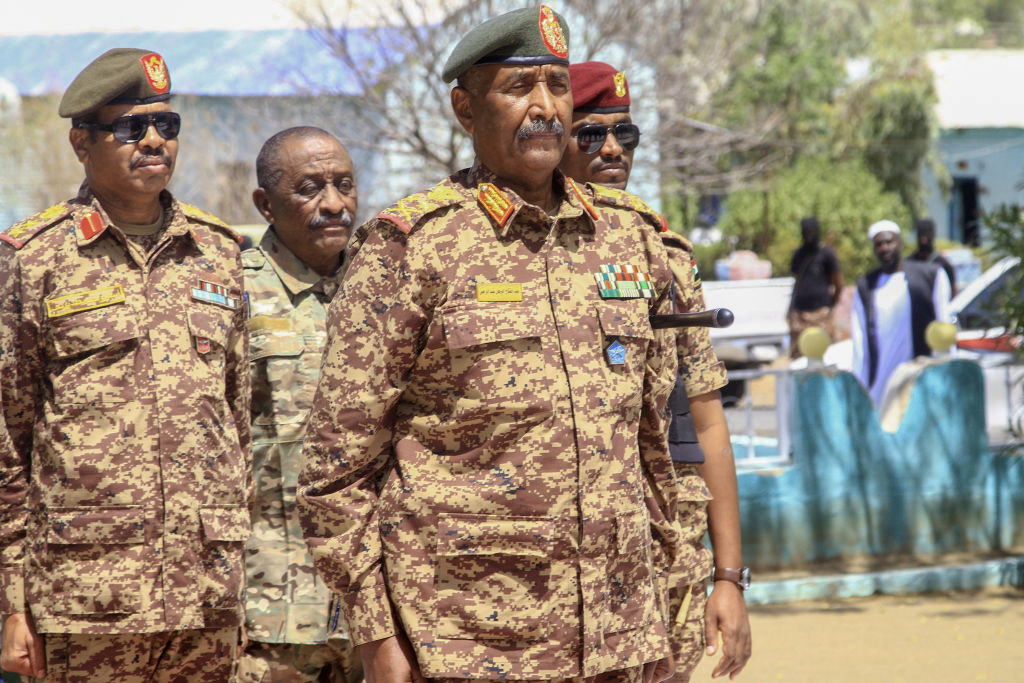
Sudan's General Abdel Fattah al-Burhan's continued hold on power represents a serious threat not only to Sudan's stability but to regional security and global interests. For years, al-Burhan has cultivated an image of pragmatism and order, while in practice he has forged deep ties with the Muslim Brotherhood — an Islamist movement whose ideological and logistical networks have directly supported violent groups like Hamas in Gaza and the Houthis in Yemen. These groups have been responsible for a wave of bloodshed, terrorism, and instability across the Middle East, undermining regional security and threatening international trade corridors.
In April 2024, Sudan's paramilitary Rapid Support Forces (RSF) and allied factions announced a parallel Sudanese government-in-exile, based in Nairobi, Kenya. Several African leaders cautiously welcomed the move as a potential path toward ending the relentless conflict in Sudan. Yet, despite these diplomatic overtures, violence continues to ravage Sudan. This initiative must be acknowledged as a vital opportunity: Egypt and Saudi Arabia — regional powerhouses with vast influence — must transition from mere rhetoric to decisive action. They are obligated to pressure both sides into a ceasefire, to broker earnest national reconciliation, and to help restore civilian governance as the country's ultimate aim.
Under al‑Burhan, Sudan has increasingly become a permissive environment for extremist groups, providing them with cover, logistical infrastructure, and potential avenues for military collaboration. This is not merely a domestic political problem. It reflects a broader pattern in which transnational Islamist movements exploit weak states to expand their reach and entrench themselves in local conflicts — effectively creating safe havens for anti-Western and anti-democratic agendas.
Meanwhile, Iran sees al‑Burhan's regime as a strategic opportunity to extend its influence along the Red Sea. Tehran has long sought to establish footholds across the region — in Lebanon, Syria, Iraq, Yemen, Gaza and beyond — in pursuit of an arc of influence aimed at threatening Israel, undermining U.S. interests, and disrupting global trade. Al‑Burhan has opened the door for Iranian operatives, drones and advanced weaponry to flow into Sudan, transforming the country's tragic internal conflict into yet another front in Tehran's regional confrontation with the West and its allies.
Every day that al‑Burhan remains in power, Iran grows more entrenched in Sudan, using the country as a potential staging ground to threaten Israel and international shipping routes, particularly those critical lanes through the Red Sea. The risks are not hypothetical: they include the expansion of extremist recruitment networks across North and East Africa, the proliferation of advanced weaponry into conflict zones, and a greater likelihood of direct attacks on U.S. personnel and regional allies.
Sanctions and rhetorical condemnation will not change this reality. A decisive shift is needed — and that begins with removing al‑Burhan from power. Only then can Sudan begin to chart a new path forward, one centered on a genuine civilian-led government free from Muslim Brotherhood influence and Iranian patronage.
Such a transition must be accompanied by a coordinated international effort that addresses both Sudan's security challenges and its economic devastation. Beyond the immediate threat posed by extremist groups and Iranian meddling, Sudan faces a catastrophic humanitarian crisis. Years of civil war and political dysfunction have left millions displaced, industries shattered and infrastructure in ruins.
The Trump administration, drawing on the president's history of unconventional diplomacy and deal-making, could play a pivotal role in this process. The Abraham Accords demonstrated the ability to broker agreements that shift regional dynamics through pragmatic, incentive-based negotiations. Applying this approach to Sudan would involve several steps:
- Working with Egypt, Saudi Arabia, the UAE and Israel to strengthen Sudan's internal security forces, while ensuring they operate under robust civilian oversight. This is essential to deny extremist groups safe haven and limit Iran's ability to exploit Sudan as a proxy theater.
- Encouraging U.S. businesses to invest in key Sudanese sectors — particularly agriculture, energy, and telecommunications — once a stable civilian government is in place. Facilitating Sudan's return to international financial markets and providing targeted aid through the World Bank and IMF will be crucial to reversing economic collapse.
- Using American leverage to bring rival factions to the negotiating table, fostering a consensus-driven transition that prioritizes national stability over personal or factional power grabs. President Donald Trump's past diplomatic breakthroughs suggest it could play a unique role in brokering such an agreement.
But none of these initiatives is possible while al‑Burhan remains in power. His regime has become a conduit for Iranian ambitions and a shield for Muslim Brotherhood-linked gunmen. So long as he rules, efforts to rebuild Sudan's economy, restore its sovereignty, and protect regional security will fail.
It is time for the international community to make a clean break from past policies of accommodation and half-measures. Sudan deserves a future led by genuine civilian leadership, one that rejects Islamist agendas and Iranian interference. The Sudanese people have suffered too long from warlords, ideological extremists, and foreign meddling. They deserve a real chance at democratic governance, economic revival and peace.
America and its partners cannot afford to treat al‑Burhan as a legitimate interlocutor. His removal is the precondition for any viable path toward stability, security, and reconstruction. The stakes are high: the future of Sudan, the security of critical trade routes, and the broader fight against extremism and Iranian expansionism all hang in the balance. Now is the moment for decisive action and Trump's unparalleled negotiating skills.
Robert Williams is based in the United States.


